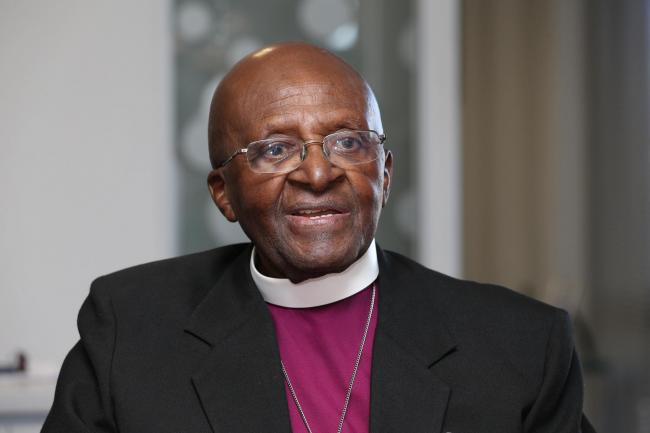Desmond Tutu, the Nobel Peace Prize-winning activist for racial justice and LGBT rights, has died aged 90.
Announcing the death, South African President Cyril Ramaphosa said it was “another chapter of bereavement in our nation’s farewell to a generation of outstanding South Africans who have bequeathed us a liberated South Africa”.
An uncompromising foe of apartheid in South Africa, Tutu worked tirelessly and peacefully for its downfall.
The buoyant, blunt-spoken clergyman used his pulpit as the first black bishop of Johannesburg and later Archbishop of Cape Town as well as frequent public demonstrations to galvanise public opinion against racial inequity both at home and globally. Mr Ramaphosa added:
“From the pavements of resistance in South Africa to the pulpits of the world’s great cathedrals and places of worship, and the prestigious setting of the Nobel Peace Prize ceremony, the arch distinguished himself as a non-sectarian, inclusive champion of universal human rights.” Tutu died peacefully at the Oasis Frail Care Centre in Cape Town, the Archbishop Desmond Tutu Trust said in a statement on Sunday.
He had been treated in hospital several times since 2015, after being diagnosed with prostate cancer in 1997.
The trust’s statement added: “Typically, he turned his own misfortune into a teaching opportunity to raise awareness and reduce the suffering of others.
“He wanted the world to know that he had prostate cancer, and that the sooner it is detected the better the chance of managing it.”
Throughout the 1980s – when South Africa was gripped by anti-apartheid violence and a state of emergency giving police and the military sweeping powers – Tutu was one of the most prominent blacks able to speak out




